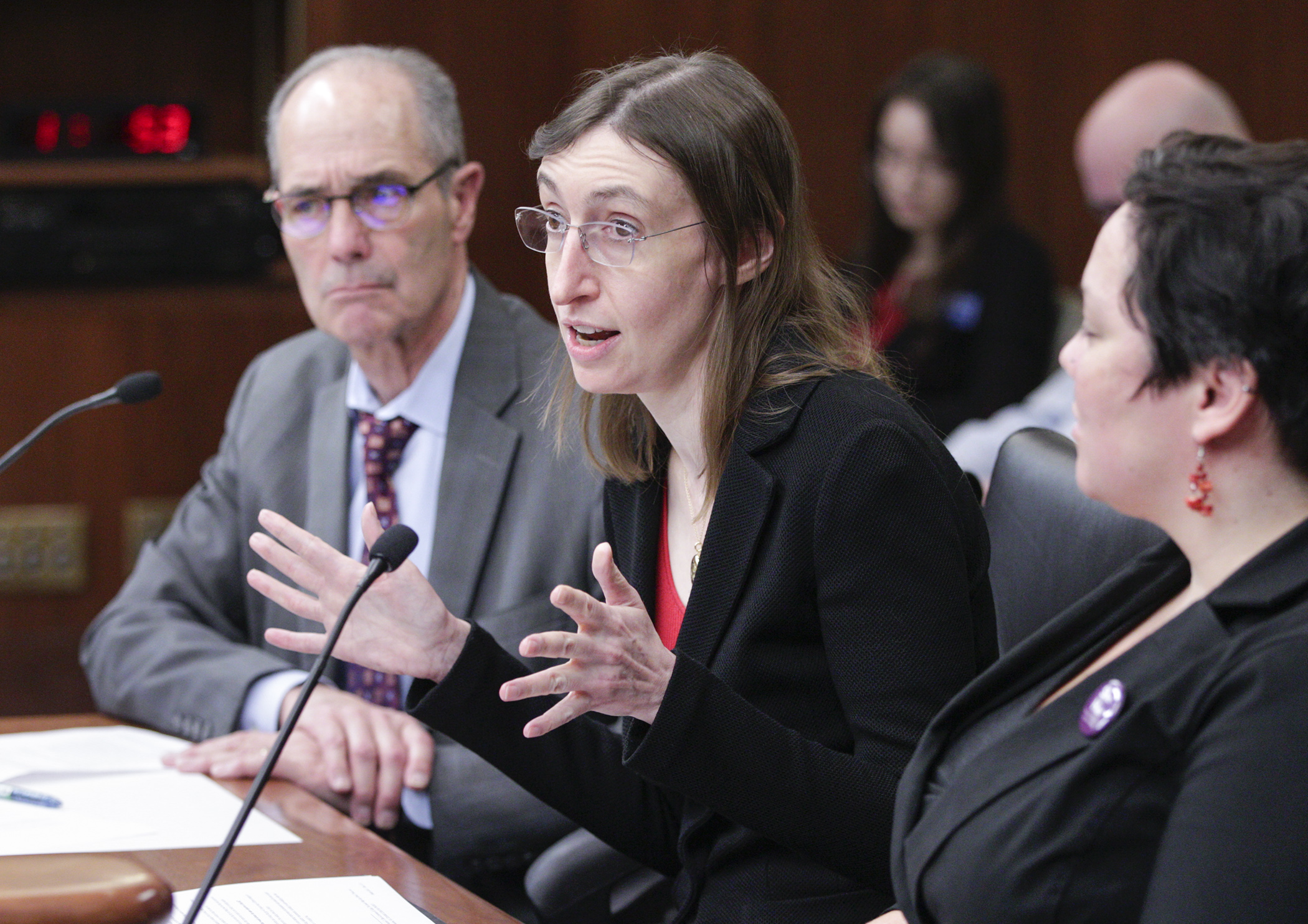Bill aims to close gender wage gap by banning employers from asking about past salaries

Equal pay for equal work has been in federal law for nearly 60 years, yet a wage gap still exists: in Minnesota, a white woman makes 80 cents on average for every dollar a man makes, according to the Department of Human Rights.
The department notes that the wage gap is even worse for Asian, Black, and Native women, with Latinas having the largest wage gap of 52 cents for every dollar a man makes.
Sponsored by Rep. Tim Mahoney (DFL-St. Paul), HF4100 aims to close those gaps by prohibiting employers from asking about a prospective employee’s past pay, which then can be used as an anchor for future salaries.
Approved by the House Judiciary Finance and Civil Law Division Thursday on a 14-2 roll-call vote, the bill was sent to the House Jobs and Economic Development Finance Division. Its companion, SF4192, is sponsored by Sen. Jeff Hayden (DFL-Mpls), and awaits action by the Senate Judiciary and Public Safety Finance and Policy Committee.
“Asking about pay history perpetuates pay discrimination,” said Jill Hasday, a professor at the University of Minnesota Law School.
She noted that federal law allows employers to pay women less than men for doing the same job, but only if the wage difference is based on past pay histories.
“The ability to rely on pay history provides employers with a ready-made excuse to underpaying women,” said Hasday.
HF4100 would put pay history within the same category as other statuses in the Minnesota Human Rights Act that employers are not allowed to consider when making hiring and promotion decisions such as age or race, said Human Rights Commissioner Rebecca Lucero.
Lucero noted that women typically earn less than men from the start of their careers, and disclosing past pay to future employers can perpetuate pay inequalities.
The bill will help ensure Minnesotans are paid based solely on their experience, skills, track record, responsibilities of the position, and market research, she said.
Mahoney said his motive for sponsoring the legislation was personal.
“I have two daughters,” he said. “And women in this world get paid 80% of what a man gets paid, which is absolutely ridiculous when they are doing the same amount of work.”
In a statement supporting the bill, Attorney General Keith Ellison noted that at current rates, Minnesota women will not get equal pay until 2053.
He further noted that recent female college graduates make an average of 18% less than their male counterparts and that pay disparity grows to 20% four years after graduation, partly due to employers asking for salary history.
Related Articles
Search Session Daily
Advanced Search OptionsPriority Dailies
Ways and Means Committee OKs proposed $512 million supplemental budget on party-line vote
By Mike Cook Meeting more needs or fiscal irresponsibility is one way to sum up the differences among the two parties on a supplemental spending package a year after a $72 billion state budg...
Meeting more needs or fiscal irresponsibility is one way to sum up the differences among the two parties on a supplemental spending package a year after a $72 billion state budg...
Minnesota’s projected budget surplus balloons to $3.7 billion, but fiscal pressure still looms
By Rob Hubbard Just as Minnesota has experienced a warmer winter than usual, so has the state’s budget outlook warmed over the past few months.
On Thursday, Minnesota Management and Budget...
Just as Minnesota has experienced a warmer winter than usual, so has the state’s budget outlook warmed over the past few months.
On Thursday, Minnesota Management and Budget...